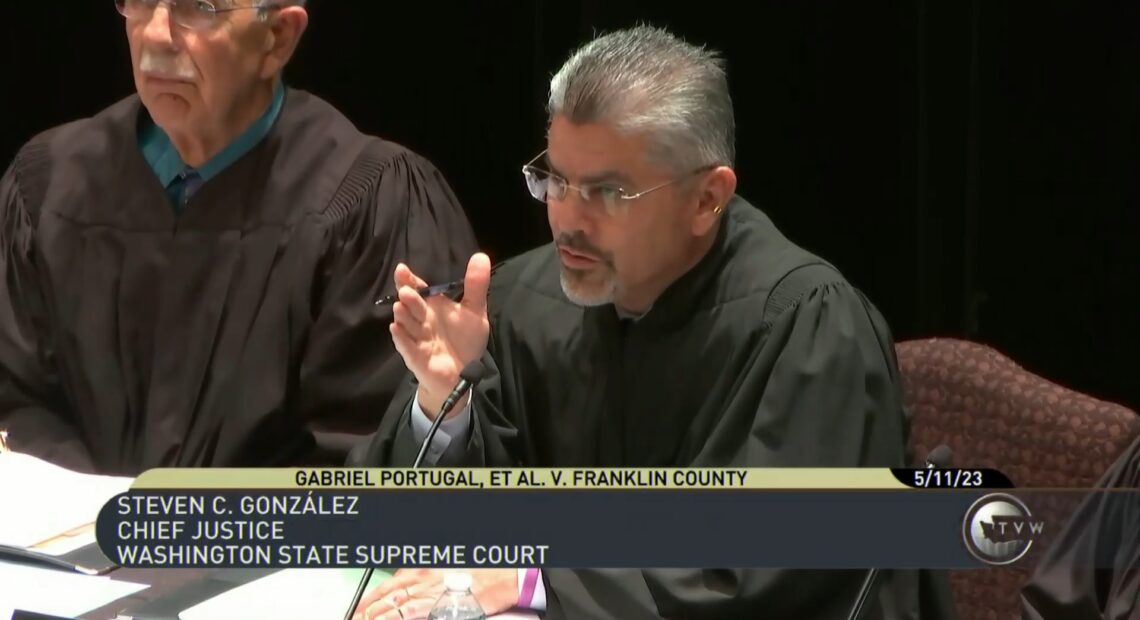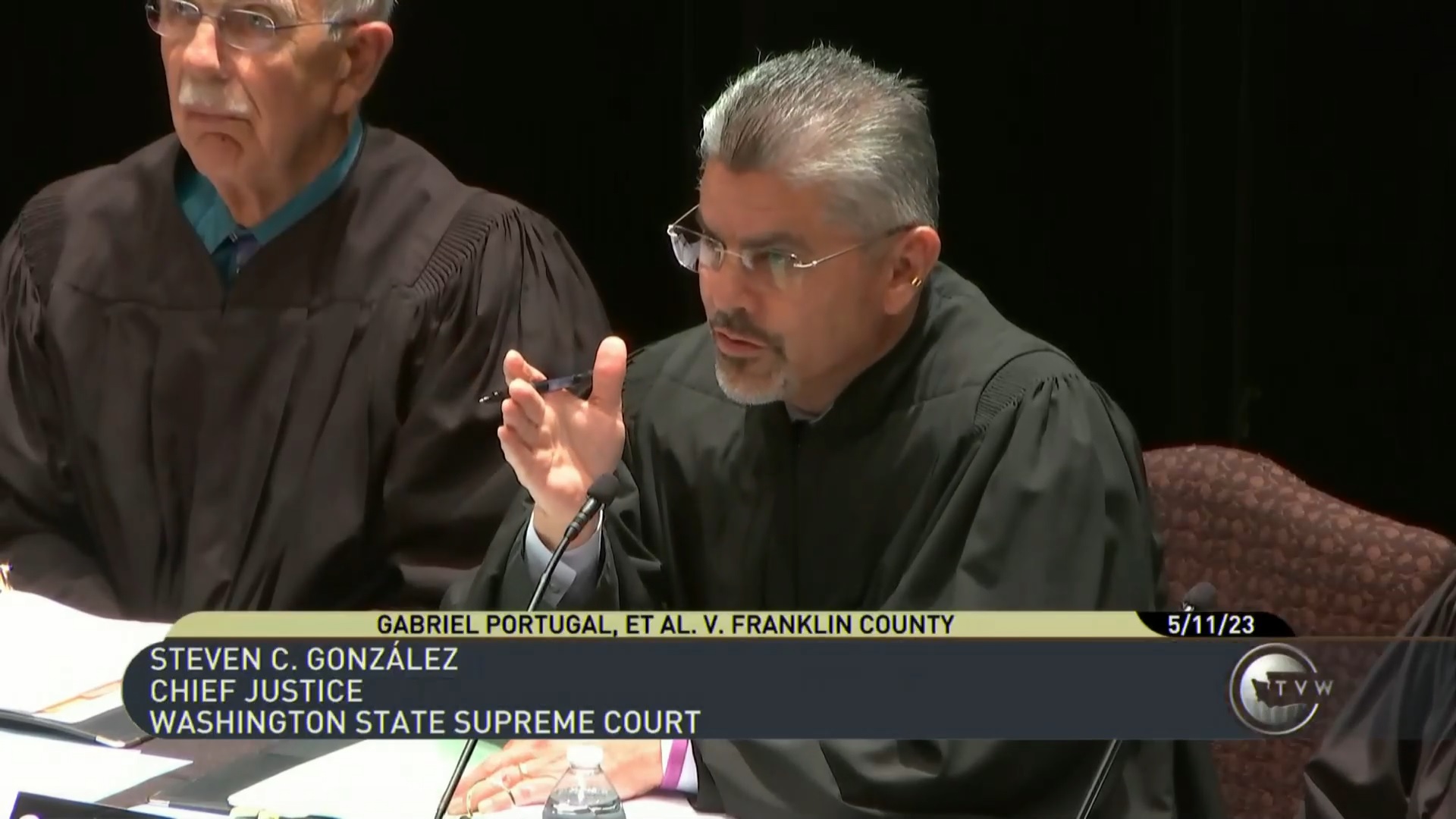
Washington Supreme Court to rule on constitutionality of Washington State Voting Rights Act
Listen
(Runtime 2:20)
Read
The Washington State Supreme Court recently heard oral arguments on the Latino voting rights lawsuit against Franklin County. The hearing comes one year after Latino voters settled an agreement with the county to create single-member district systems for elections. But during the case, a Franklin County citizen challenged the constitutionality of the Washington State Voting Rights Act. Now, that challenge appeal is keeping the matter open.
According to court documents, this most recent appeal argues that the Washington State Voting Rights Act protects only some racial groups and violates the 14th Amendment and equal protection guarantees of the U.S. Constitution.
Joel Ard represents James Gimenez, the Franklin County citizen who intervened in the case. Ard argued that to be able to sue, minority groups must make up less than half the local population.
“Here, Hispanics are a majority in Franklin County,” said Ard in his arguments.
Ard also said the term “race” is not clearly defined in federal law, the official judicial interpretation of the Federal Voting Rights Act, and the Washington Voting Rights Act.
“It seems to be that when the legislature uses race, just as when the federal legislature, the Congress, uses race, and when it’s used in judicial constructions of Section Two, everyone assumes that we all know what we’re talking about,” said Ard.
But the original plaintiffs in the case say those arguments don’t stand up. Chad Dunn represents the Latino citizens and the League of United Latin American Citizens. They said the county’s district lines dilute the Latino vote.
“Latino citizens in Franklin County are on the verge of having the opportunity to elect a candidate of their choice for the first time; that’s because of the Washington Voting Rights Act,” said Dunn in his arguments.
“Now this challenge that seeks to strike down that act as unconstitutional is based upon theories since rejected by every court that has had an opportunity to consider them,” Dunn added.
Dunn also argued that’s what the minority requirement is all about: the voting population, not the entire population.
“Latino citizens are a minority of the voting population,” said Dunn.
Dunn said because of the large district election system, Latino voters cannot elect the candidates of their choice.
But, Dunn also said that all citizens regardless of race, ethnicity, background, or language minority status, can bring a claim if they can show and prove racially-polarized voting and lack of an ability to elect.
Dunn said both conditions have been extensively proven in Franklin County.
Now it’s is in the hands of the state’s Supreme Court judges to decide the matter.
















